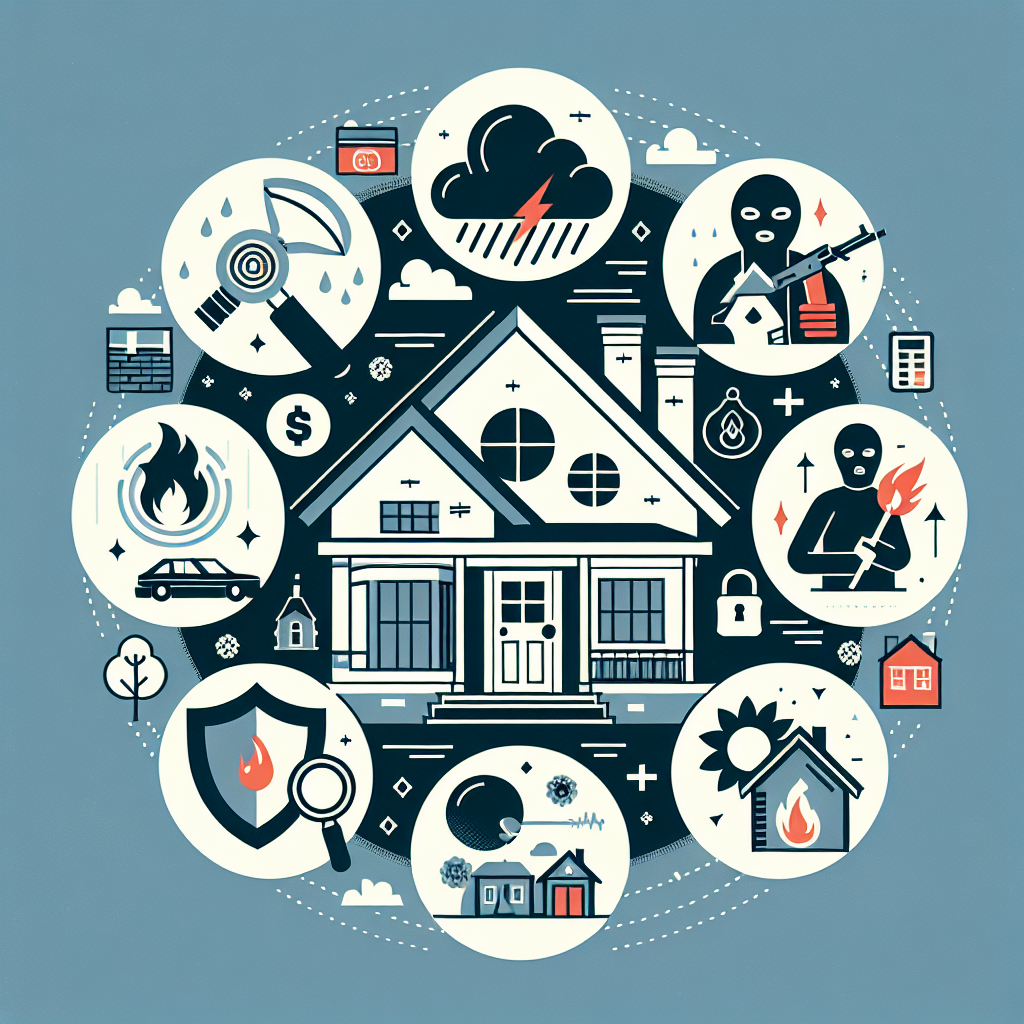Filed under Home Insurance on
Understanding Home Insurance: Types of Coverage Explained

In the swirling sea of homeownership, understanding home insurance is akin to knowing the lifeboat is right there when turbulent waters hit. Home insurance plays a crucial role in safeguarding what is often the biggest investment in one's life. Given its importance, it's essential to understand the different types of coverage available and the protection each one offers.
What is Home Insurance?
Home insurance, also known as homeowners insurance, is a type of property insurance that covers losses and damages to an individual's house and to assets in the home. It also provides liability coverage against accidents in the house or on the property. While home insurance isn't required by law, mortgage lenders often require borrowers to have it, ensuring the lender's investment is protected.
Different Types of Home Insurance Coverage
Understanding home insurance involves familiarizing oneself with the varied types of coverage available. Each type provides distinct protection levels, which is essential for ensuring comprehensive security for your home.
1. Dwelling Coverage
The cornerstone of any home insurance policy, dwelling coverage protects the physical structure of your home. This encompasses walls, floors, roofs, and built-in appliances. Causes for damage covered under dwelling coverage typically include fires, windstorms, hail, or other natural disasters. However, most policies do not cover floods or earthquakes, for which separate policies are necessary.
2. Personal Property Coverage
Your possessions, from furniture to electronics and clothing, are safeguarded under personal property coverage. This coverage reimburses the homeowner if these items are lost, stolen, or destroyed in a covered event. While each policy is unique, some may cap payouts for high-value items like jewelry or art, necessitating additional endorsements for full coverage.
3. Liability Protection
Liability protection is an often-overlooked but crucial component of home insurance. This coverage shields you in the event someone gets injured on your property and sues for damages. Moreover, it can cover damage you or family members cause to others' property. Considering the potentially high legal costs associated with lawsuits, robust liability coverage is highly recommended.
4. Additional Living Expenses (ALE)
When a covered loss makes your home uninhabitable, additional living expenses coverage steps in to ease the burden. ALE coverage pays for the cost of living away from your home, including hotel bills and meals, until repairs are completed and you can return home.
5. Medical Payments Coverage
Distinct from liability protection, medical payments coverage assists with minor medical bills if a guest is injured on your property, regardless of fault. With low coverage limits compared to liability insurance, it swiftly covers small claims without the complexity of establishing liability.
6. Other Structures Coverage
Homeowners with detached structures on their property, such as garages, sheds, or fences, benefit from other structures coverage. This specific type of coverage caters to damages sustained by structures not directly attached to the main home, often an overlooked aspect within a home insurance policy.
Evaluating Your Home Insurance Needs
While understanding home insurance is crucial, assessing your personal needs is just as important. Consider your home's location, the value of your assets, and your financial situation when determining the appropriate coverage levels. Additionally, homeowners should not merely consider the replacement cost of their home but also the rebuild cost, which can be influenced by construction prices and local demand.
Industry Trends: Customization and Technology
The home insurance industry is evolving, with technology and customization playing significant roles. Smart home devices that monitor risks, such as leaks or fires, are influencing insurance premiums. Insurers are offering discounts to homeowners who employ these risk-mitigation technologies.
Customization of policies to better fit individual homeowner needs is becoming the norm rather than the exception. Insurers are moving away from one-size-fits-all policies, offering more flexible options and endorsements that allow homeowners to tailor their coverage according to specific risks and assets.
Expert Opinions on Home Insurance
Experts stress the importance of regularly reviewing home insurance coverage. Changes in the housing market, significant renovations, or acquiring high-value items can all necessitate adjustments to existing policies. Insurance professionals advocate for annual policy reviews to ensure adequate protection at any given time.
Moreover, with climate change effectuating more frequent severe weather events, experts suggest reviewing policies to ensure coverage for natural disasters, potentially adding specific flood or earthquake coverage in susceptible areas.
Tips for Selecting the Right Policy
- Compare Multiple Quotes: Just as no two homes are alike, nor are insurance policies. Obtain quotes from several insurers to identify competitive rates and coverage options.
- Understand Exclusions and Limitations: All policies have exclusions. Knowing what is and isn't covered is crucial for avoiding unpleasant surprises during claims.
- Seek Professional Guidance: A reputable insurance agent or broker can provide invaluable insights, helping you choose coverage that aligns with your unique circumstances.
- Consider Customer Service: Evaluate insurers not only on their policy offerings but also on their customer service reputation—smooth claims processes can be a lifesaver.
- Leverage Discounts: Many insurers offer discounts for bundled policies, new home buyers, or those employing protective devices or smart home technology.
The Bottom Line
Understanding home insurance is foundational to feeling secure in homeownership, offering peace of mind through life's unpredictable nature. By comprehensively evaluating the types of home insurance coverage available, assessing personal needs, and keeping abreast of industry changes and expert advice, homeowners can bolster their defenses against life's unwelcome surprises.
Whether a seasoned homeowner or purchasing a first home, staying informed and proactive in managing home insurance is crucial for maintaining security and peace of mind in your sanctuary.





